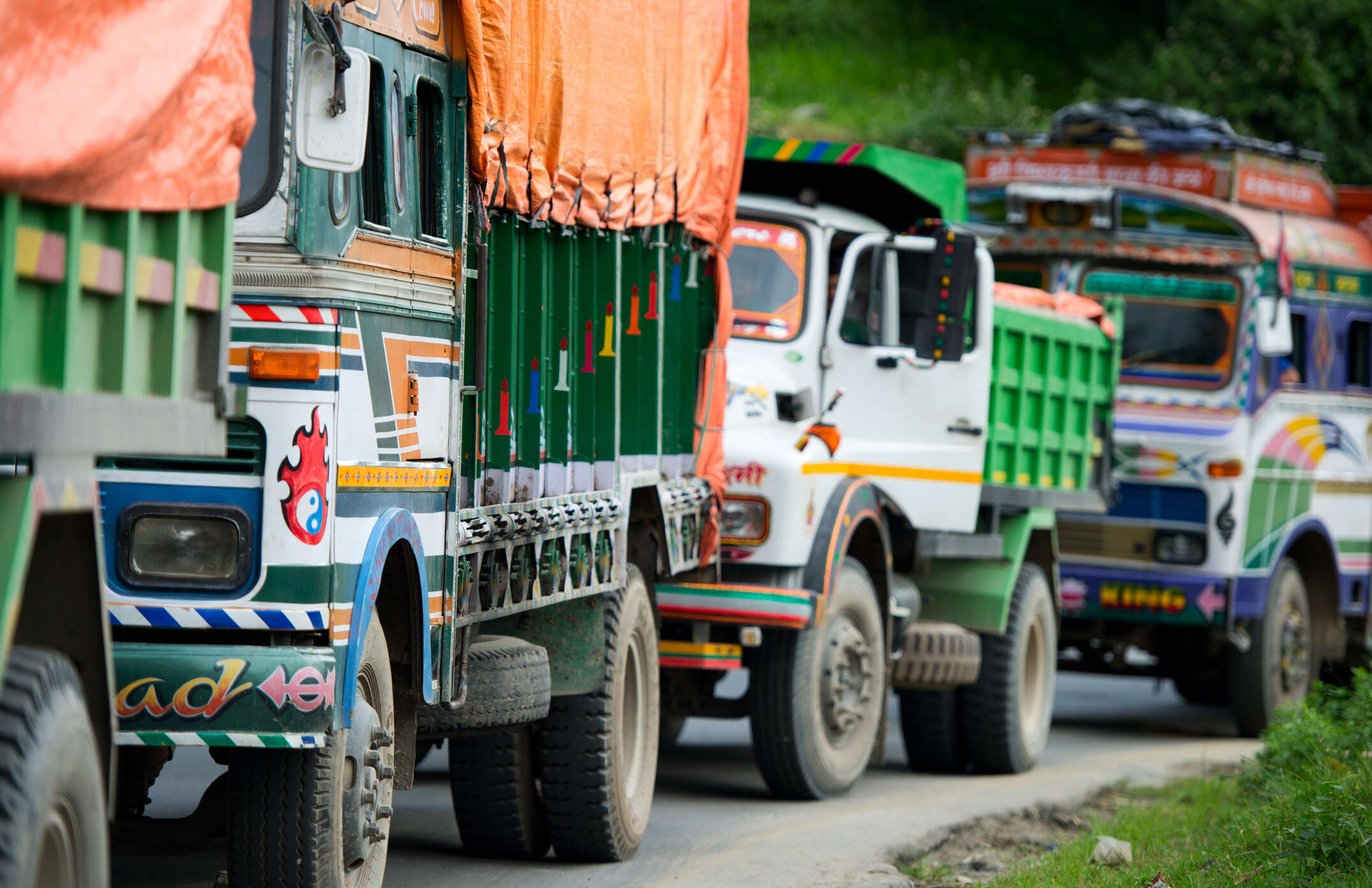
Mumbai: The fresh wave of Covid-19 cases sweeping the country and the resultant lockdown measures implemented by several states have already started hurting transporters.
The trade is estimated to suffer $2.4 billion (Rs 17,800 crore) of revenue loss in April alone, according to leading transporters. This could also affect GDP growth, which is projected at 10.5% by the central bank for this fiscal year.
The Indian road transport sector carries goods worth $150 billion a year, which means about $12 billion of business is done per month. As of now, the impact is 15-20%, but it may exacerbate in the coming weeks, fear transporters.
Transport Corporation of India chief executive Jasjit Sethi said retail markets were impacted, there was a drop in load availability and that the overall supply chain was slowing down.
“The current wave is more aggressive and daily infection numbers are higher than ever. The impact is likely to spread to other states from just Maharashtra and Delhi. We feel there will be a minimum impact of 20% on load carriage, which may take away a couple of billion dollars in revenue for the logistics sector for the month,” added Sethi.
Truck rentals, which were firming up on improving trade, are also set to fall 6-8% in April, said the Indian Foundation for Transport Research & Training.
SP Singh, a senior fellow & coordinator at the foundation, told ET that the demand till March 31 was very healthy, but over the last 10 days, there had been a drop in business of 15-20%.
“The trucks are being moved from long-haulage trucks to agri products. Despatches from the factory gates have dropped and the load availability has come down. Thankfully, there is a compensatory load of harvest or else the drop would have been even steeper,” added Singh.
The load offtake from the wholesale market of the National Capital Region has seen a 30-50% drop. The NCR hub serves basic needs for the neighbouring states of Haryana, Rajasthan, Punjab, UP and Himachal Pradesh, but there are trucks lying idle, said Singh.
We feel there will be a minimum impact of 20% on load carriage, which may take away a couple of billion dollars in revenue for the logistics sector for the monthJasjit Sethi, chief executive, Transport Corporation of India
The truck fleet utilisation had peaked to 85% in March, which was better than the pre-Covid levels, but has now dropped to 70%, according to truckers.
“Transport is a dependent business, it is not an independent business … Since truckers will be having lesser trips to run, business is expected to go down by 25%,” said Singh of foundation.
Truckers will be hard-pressed to pay back their EMIs, he added.
Lobby group All India Motor Transport Congress (AIMTC) estimates an up to 50% drop in demand in the sector, resulting in daily lost business of about Rs 315 crore. Other industry stakeholders too expressed fear of the business getting hit due to the lockdowns, but pegged a lower magnitude of impact.
The situation is also causing delays as some companies in Maharashtra are holding trucks for a day before loading goods onto them, as a precaution against infection in case the vehicle has been contaminated, said Sachin Haritash, a director at Chetak Logistics.
Delays are also caused due to checks on state borders for RT-PCR tests for drivers, he said. This causes an artificial shortage of transport capacity in the market, he added.
However, the situation is yet to impact demand for transport from sectors like FMCG, ecommerce and the automobile industry, Haritash said.
A delay in the movement of vehicles may also lead to the expiry of e-way bills in some cases, the AIMTC said. The lobby group demanded priority vaccination for drivers and workers in the transportation business.
“The lockdown rules in some states like Maharashtra and Chhattisgarh will lead to considerable problems in road transportation,” said Vijay Kumar, chief operating officer at lobbying body Express Industry Council of India.
“While last-mile ecommerce is being allowed in Maharashtra, Chhattisgarh has come up with rules that also stop last-mile delivery of goods,” he added.
“In terms of cargo transportation, there has been a clear shift from road to rail in the last 8-9 months,” said Prahlad Tanwar, partner at KPMG.
“The shift has been even more prominent after the increase in fuel prices for vehicles,” he added.















